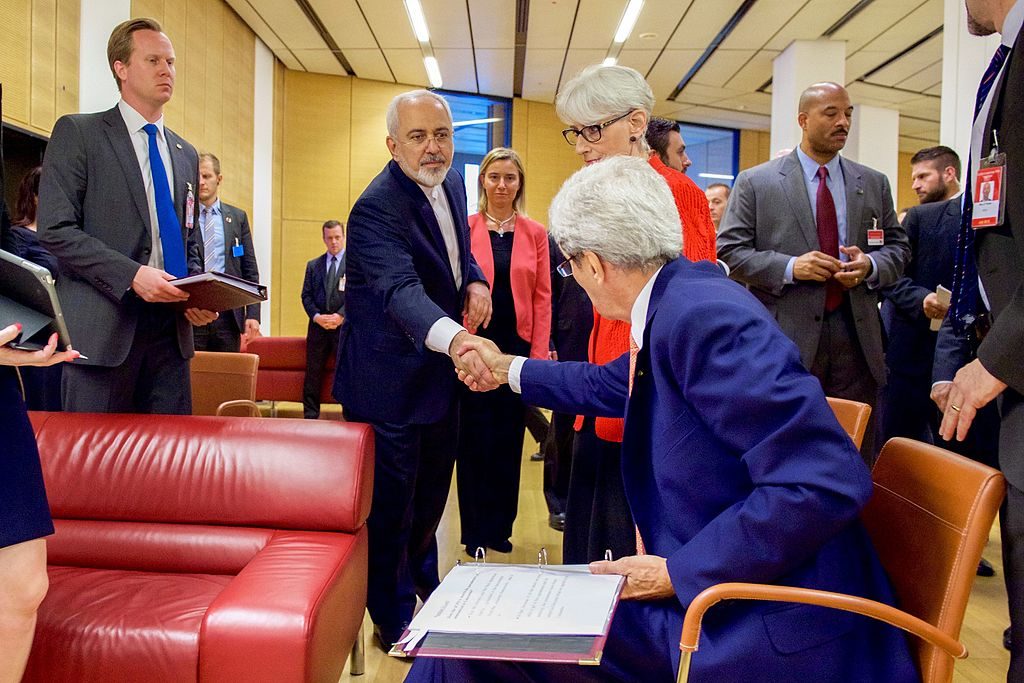As a new American president begins his administration, Travis Bean, an Executive MSc student in International Strategy and Diplomacy managed by LSE IDEAS, looks at the history of US nuclear non-proliferation and the mistakes that Biden’s team should avoid.

Following nearly a decade of intermittent discussion, the Eighteen Nation Committee on Disarmament struck an agreement that would grow to become the Treaty on the Non-Proliferation of Nuclear Weapons in 1968. The treaty (also known as the NPT) recorded the nations promising “measures in the direction of nuclear disarmament.” Over several decades, multiple violations of both the stated rules and underlying intent of the NPT by the United States have resulted in a weakening of the international framework for reducing the threat of nuclear weapons.
Through its security relationship with Israel, the United States tacitly endorses norm-breaking and erodes the power of the NPT as a global tool for peace.
An early but enduring error of the United States’ non-proliferation strategy is the country’s implied consent for Israel’s nuclear weapons program. In the 1960s, a nascent Israeli government successfully developed nuclear weapons. Notably, Israel has never been a member of the NPT and has never confirmed nor denied the existence of its weapons; despite a good deal of information affirming the country’s stockpile. That Israel is a major benefactor of US defense assistance, despite being a nuclear weapons state outside the NPT, is problematic. Through its security relationship with Israel, the United States tacitly endorses norm-breaking and erodes the power of the NPT as a global tool for peace.
A more recent example of a denuclearisation misstep is America’s civil nuclear cooperation with India. In a July 2005 statement, former President Bush noted “India’s strong commitment to preventing WMD proliferation”, and called the country “a responsible state with advanced nuclear technology.” This declaration was a catalyst for a later agreement for the US and India to increase cooperation in the field of civil nuclear technology. The White House statement notwithstanding, India tested its first nuclear device in 1974 and has never been party to the NPT. The NPT encourages sharing of civil nuclear technology, but it does so amongst its members. Not specifically prohibited by the treaty are members assisting non-members with their civil programs. It is clear that the United States’ nuclear relationship with India is against the intent of the NPT.
It is clear that the United States’ nuclear relationship with India is against the intent of the NPT.
In early 2014, masked soldiers in unmarked uniforms began appearing in Eastern Ukraine and Crimea. These “little green men”, it was later determined, were Russian soldiers whose stated goal was to stabilise the Ukrainian government and protect the rights of ethnically Russian citizens of the region. While NATO and Russia may disagree on the merits of the military occupation of Donbas and Crimea, it is a violation of Ukraine’s Budapest Memoranda on Security Assurances. The agreement, which both the US and Russia were party to, guaranteed Ukraine’s territorial sovereignty following the country’s surrender of Soviet-era nuclear weapons. Russia’s continued military occupation of Ukraine indicates that the United States’ actions thus far have not been enough to guarantee integrity of the the ex-nuclear nation’s borders. The dynamic in Ukraine telegraphs to the world that the United States only cares about non-proliferation long enough for smaller states to give up their weapons, but not any further.
A deal was struck in July of 2015 between Iran and six world powers, including the United States. The Joint Comprehensive Plan of Action (JCPOA), also known as the “Iran Nuclear Deal”, lifted sanctions on the Middle Eastern nation in exchange for permitting robust inspections of its nuclear facilities. Nearly three years later, following inauguration as president and after implementation of a dizzying array of arbitrary foreign policy decisions, Donald Trump backed out of the agreement with Iran. Critics of the deal state that it is (or was) tantamount to appeasement with a hard-line regime. Yet the agreement resulted in a ninety eight percent reduction of the country’s Uranium stockpile and physically limited its ability to produce fissionable fuel, severely reducing Iran’s nuclear prospects. Viewed through the prism of non-proliferation, walking away from the JCPOA was a step in the wrong direction.
Nuclear disarmament is more complicated than simply having countries reduce their inventory of warheads. It is a strategic goal that is sensitive to other diplomatic actions.
Nuclear disarmament is more complicated than simply having countries reduce their inventory of warheads. It is a strategic goal that is sensitive to other diplomatic actions. By failing to recognise how certain decisions and policies effect proliferation, the United States effectively trades the long-term objective of disarmament for short term gains. President Joe Biden, having been in office for the birth of the JCPOA, knows the importance of non-proliferation. The true test will be if Biden and his staff can see trouble when it’s coming—situations with more complicated and more obscure links to denuclearisation. The future of nuclear disarmament depends on his team’s judgement.
This article represents the views of the author.
Photo of Secretary Kerry shaking hands with minister Zarif from U.S. Department of State, Public domain, via Wikimedia Commons.



An interesting piece. As an LSE ideas alumnus and someone who wrote his dissertation on the same issue, I would like to ask the author of how the US should respond to criticisms that the agreement should have contained elements that curtail Iran’s strategic behaviour in the region rather than simply limiting its nuclear stockpile (which was a good achievement as you stated).
Hi Mohammed,
Thank you for your great question. I should start by saying that I am not an Iran expert and welcome your comments If you have any.
My response is twofold. Firstly, considering the long period between the JCPOA and previous US/EU/Iran agreements, its scope was necessarily narrow. Each party could only hope for so much. Therefore, the lifting of targeted sanctions was an appropriate trade for uranium enrichment limits (rather than enrichment limits and restrictions on military involvement beyond its borders). Secondly, and perhaps too optimistically, I am hopeful that the JCPOA will be the catalyst for future agreements that bring Iran in line with a more rules-based regional and international order. Will that be the case? Only time will tell. But the pre-JCPOA US/EU strategy did not seem to be working.